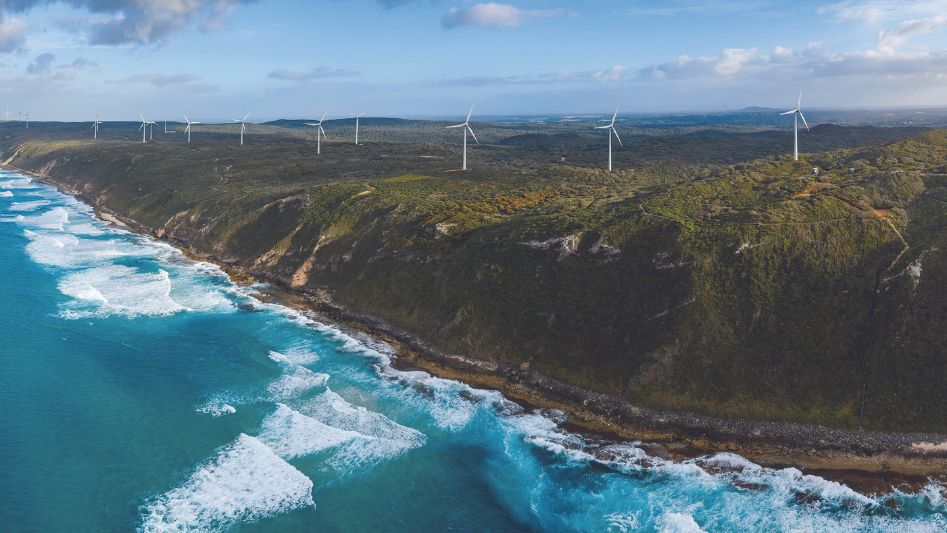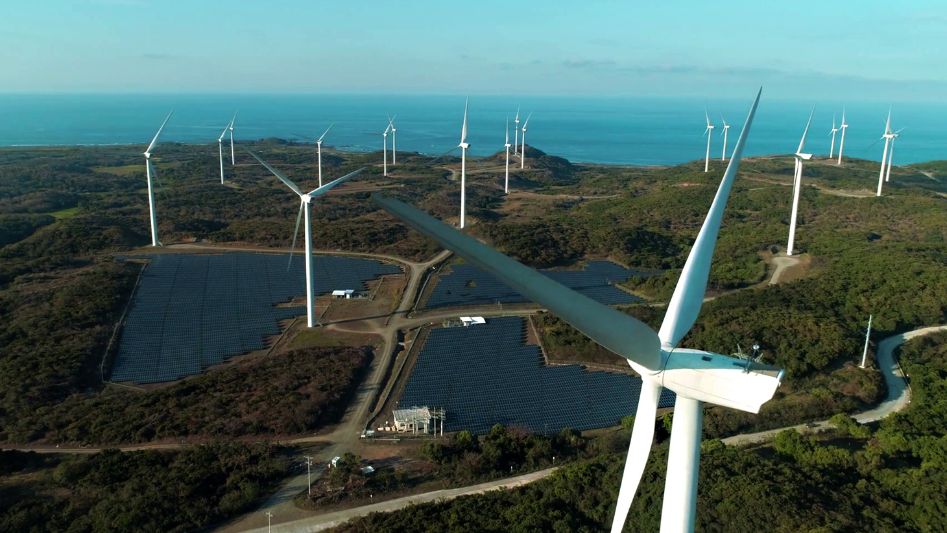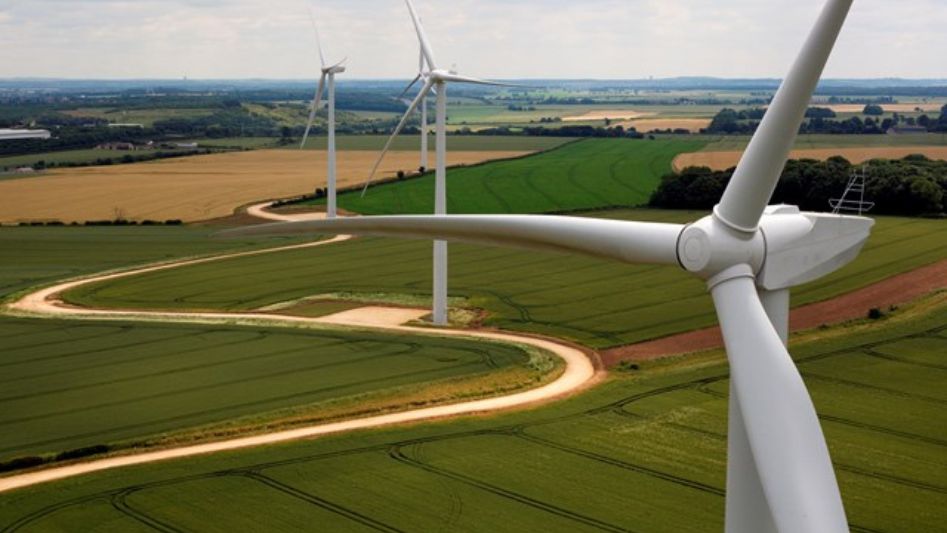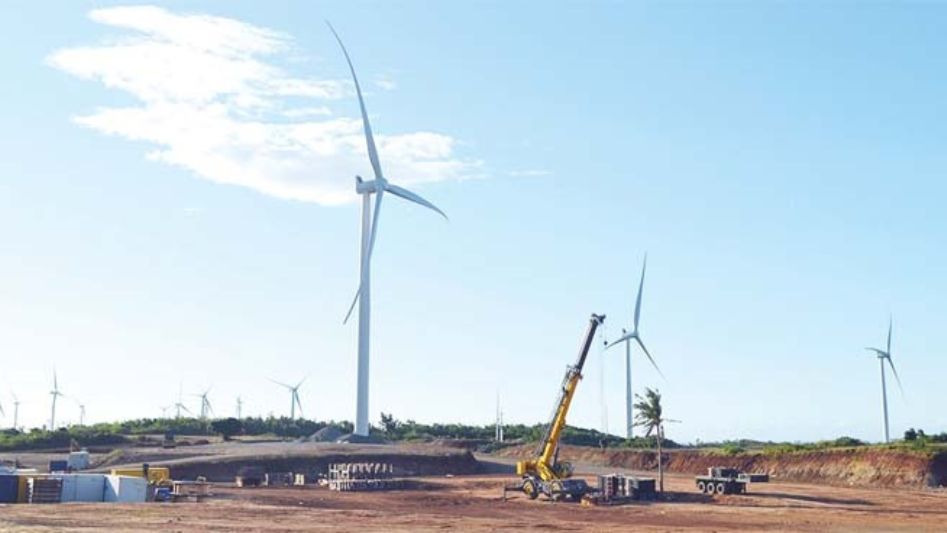Wind energy can play a crucial role in mitigating climate change by providing a clean and renewable source of electricity that doesn’t emit greenhouse gases.
Table Of Content
Introduction
Climate change is one of the biggest challenges facing our planet, and finding solutions to reduce greenhouse gas emissions is essential. Renewable energy, such as wind energy, has emerged as a key player in this effort. In this article, we will explore how wind energy can help mitigate climate change.
We invite you to read: “Improving Wind Turbine Efficiency through Aerospace Technology”
Wind Energy and Climate Change
Wind energy is a clean and renewable source of energy that does not emit greenhouse gases or other pollutants. By generating electricity from wind energy instead of burning fossil fuels, we can significantly reduce greenhouse gas emissions and the impact of climate change. Wind energy is also a versatile source of energy, capable of producing power on both small and large scales.
One of the main advantages of wind energy is its potential for large-scale deployment. Wind farms can generate significant amounts of electricity, making them an attractive option for meeting the energy needs of communities and businesses. Additionally, wind energy is becoming more affordable, making it increasingly competitive with fossil fuels.
Wind Energy vs. Fossil Fuels
Compared to fossil fuels, wind energy has a much lower environmental impact. The process of extracting and burning fossil fuels releases large amounts of greenhouse gases into the atmosphere, contributing to climate change. In contrast, wind turbines generate electricity without emitting any greenhouse gases or other pollutants.
Moreover, wind energy has a much smaller land footprint than fossil fuels. Wind turbines can be installed on land that is otherwise unsuitable for agriculture or development, and they can coexist with other land uses such as farming and grazing. In contrast, fossil fuel extraction requires large amounts of land for drilling, mining, and other activities.
We invite you to read: “How Wind Energy Can Contribute to a Zero-Carbon Future”
Challenges and Opportunities
Despite its many benefits, wind energy still faces some challenges. One of the main challenges is the intermittency of wind. Wind turbines generate electricity only when the wind is blowing, so there is a need to store excess energy during times of high wind production for use during times of low wind production. Additionally, there can be opposition to wind farms from local communities who may be concerned about the impact on wildlife, visual impacts, or noise pollution.
However, there are also opportunities to overcome these challenges. Advances in energy storage technology, such as batteries and pumped hydro storage, can help address the issue of intermittency. Additionally, improved turbine design and placement can minimize the impact on wildlife, while community engagement and education can help address concerns and increase support for wind energy.
Challenges and future outlook
While aerospace technology has a lot to offer in terms of improving wind turbine efficiency, there are also several challenges that need to be addressed. These include the cost of implementing advanced aerospace technology in wind turbines and the need for skilled engineers and technicians to design, install, and maintain these systems. Additionally, there are still many unknowns about how wind turbines will perform over the long term, particularly as they are installed in increasingly complex and varied environments.
We invite you to read: “Why Wind Energy is an Essential Part of the Renewable Energy Mix”
Conclusion
Overall, wind energy has significant potential to help mitigate climate change by reducing greenhouse gas emissions and providing a clean and renewable source of energy. While there are challenges to overcome, the benefits of wind energy make it a crucial player in the transition to a more sustainable future. As we continue to invest in and develop wind energy technology, we can work towards a cleaner, healthier planet for generations to come.
FAQ
How does wind energy help mitigate climate change?
Wind energy generates electricity without emitting greenhouse gases or other pollutants, reducing the impact of climate change.
What are the advantages of wind energy over fossil fuels?
Compared to fossil fuels, wind energy has a much lower environmental impact, a smaller land footprint, and is becoming increasingly affordable.
What are the challenges of wind energy?
One of the main challenges of wind energy is the intermittency of wind, which can make it difficult to rely on as a consistent source of electricity.
Can wind energy be used on a large scale?
Yes, wind energy can be deployed on a large scale, with wind farms capable of generating significant amounts of electricity to meet the energy needs of communities and businesses.
You May Also Like
- Renewable Energy 2.0: A Comparison of Hydro and Wind Power Technologies
- Wind Power and Forest Restoration: A Match Made for Sustainable Energy
- Revolutionizing Wind Energy Design: The Power of Computational Fluid Dynamics (CFD)
- How Machine Learning is Powering up Wind and Solar Energy
- Onshore Versus Offshore Wind Energy: Pros & Cons




